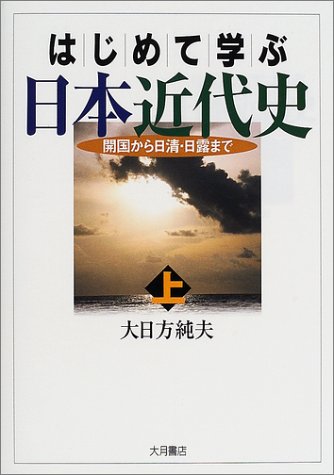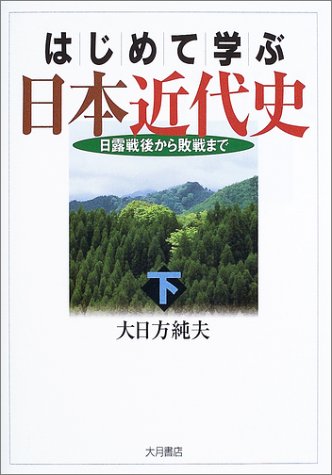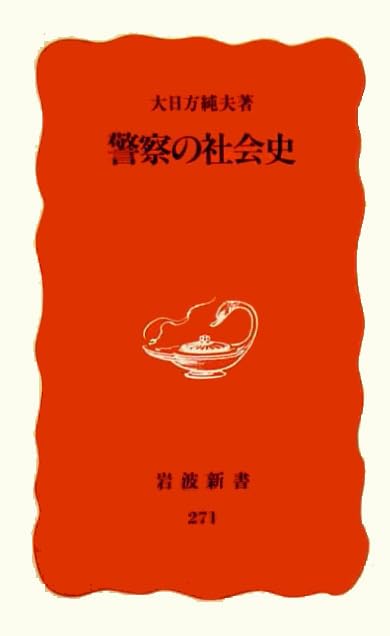27 0 0 0 OA 「帝国軍隊」の確立と「男性」性の構造
- 著者
- 大日方 純夫
- 出版者
- ジェンダー史学会
- 雑誌
- ジェンダー史学 (ISSN:18804357)
- 巻号頁・発行日
- vol.2, pp.21-33, 2006 (Released:2011-10-11)
- 参考文献数
- 17
Early in its establishment, the modern Japanese state introduced draft and schooling systems and made it obligatory for all of its subjects to get military training and to become educated. When incorporating a gender perspective, the difference between the two is obvious. While schooling was for both men and women, the army was only for men. Discussion of the "myth of the National Army" or the "disciplining the subjects" without recognizing this crucial difference might mistakenly reproduce another "myth."This article attempts to clarify the structure of masculinity by focusing on the Japanese army after the Russo-Japanese War. Masculinity was constructed in daily life in military barracks. This masculinity was "shown" and "tested" in actual battlefields. At the same time, the soldiers were expected to realize the "men's duty." In the Sino-Japanese and the Russo-Japanese Wars, the soldiers' masculinity was scrutinized, converging on "Yamato Damashii (the Japanese Spirit)" and "Bushido." The new "Bushido" that emerged after the Sino-Japanese War was incorporated in the Japanese military as its spiritual core. The masculinity that was constructed and emphasized in this way contributed to the emergence of extreme irrationality and spiritualism in the "Imperial Army."The "Imperial Army" depended on the extreme spiritualism to compensate for the scarcity of materials with which to pursue the war, placing too much burden on the concept of masculinity. The spiritualism nurtured "Yamato Damashii" and "Bushido" in the military. At the same time, a kind of familism was introduced into the Japanese army after the Russo-Japanese War. That is, barracks were likened to the family and the military discipline and spirit were fostered through "domestic education." Further, the military strengthened its interference into the national school system after the Russo- Japanese War and watched over the thorough infiltration of militaristic patriotism ("Chukun Aikoku") among students. The concept of masculinity was instilled into the minds of both men and women through ordinary education. Men should become soldiers and discard their lives for "royalty and courage." Such masculinity was highly praised and "Bushido" was utilized to encourage the spirit.
4 0 0 0 IR 早稲田大学歴史館における小野梓の位置
- 著者
- 大日方 純夫
- 出版者
- 早稲田大学大学史資料センター
- 雑誌
- 早稲田大学史記要 = Transactions of Waseda University Archives (ISSN:05111919)
- 巻号頁・発行日
- vol.49, pp.1-12, 2018-03
2 0 0 0 南北朝正閏問題の時代背景 (特集/南北朝正閏問題100年)
- 著者
- 大日方 純夫
- 出版者
- 校倉書房
- 雑誌
- 歴史評論 (ISSN:03868907)
- 巻号頁・発行日
- no.740, pp.4-17, 2011-12
1 0 0 0 「帝国軍隊」の確立と「男性」性の構造
- 著者
- 大日方 純夫
- 出版者
- ジェンダー史学会
- 雑誌
- ジェンダー史学 (ISSN:18804357)
- 巻号頁・発行日
- vol.2, pp.21-33, 2006
Early in its establishment, the modern Japanese state introduced draft and schooling systems and made it obligatory for all of its subjects to get military training and to become educated. When incorporating a gender perspective, the difference between the two is obvious. While schooling was for both men and women, the army was only for men. Discussion of the "myth of the National Army" or the "disciplining the subjects" without recognizing this crucial difference might mistakenly reproduce another "myth."<BR>This article attempts to clarify the structure of masculinity by focusing on the Japanese army after the Russo-Japanese War. Masculinity was constructed in daily life in military barracks. This masculinity was "shown" and "tested" in actual battlefields. At the same time, the soldiers were expected to realize the "men's duty." In the Sino-Japanese and the Russo-Japanese Wars, the soldiers' masculinity was scrutinized, converging on "Yamato Damashii (the Japanese Spirit)" and "Bushido." The new "Bushido" that emerged after the Sino-Japanese War was incorporated in the Japanese military as its spiritual core. The masculinity that was constructed and emphasized in this way contributed to the emergence of extreme irrationality and spiritualism in the "Imperial Army."<BR>The "Imperial Army" depended on the extreme spiritualism to compensate for the scarcity of materials with which to pursue the war, placing too much burden on the concept of masculinity. The spiritualism nurtured "Yamato Damashii" and "Bushido" in the military. At the same time, a kind of familism was introduced into the Japanese army after the Russo-Japanese War. That is, barracks were likened to the family and the military discipline and spirit were fostered through "domestic education." Further, the military strengthened its interference into the national school system after the Russo- Japanese War and watched over the thorough infiltration of militaristic patriotism ("Chukun Aikoku") among students. The concept of masculinity was instilled into the minds of both men and women through ordinary education. Men should become soldiers and discard their lives for "royalty and courage." Such masculinity was highly praised and "Bushido" was utilized to encourage the spirit.
1 0 0 0 OA 明治新政府とキリスト教-諜者の動向を中心に-
1 0 0 0 開国から日清・日露まで
1 0 0 0 日露戦後から敗戦まで
1 0 0 0 IR 小野梓の米英留学 : 履歴事項の検証と確定
- 著者
- 大日方 純夫
- 出版者
- 早稲田大学大学史資料センター
- 雑誌
- 早稲田大学史記要 (ISSN:05111919)
- 巻号頁・発行日
- vol.46, pp.19-35, 2015-02
1 0 0 0 OA 現代日本のリスク社会化環境における共生社会論のあり方と実践方法に関する実証的研究
後期近代社会としての日本社会は「リスク社会化」という社会構造の変動過程の文脈の中にあるが、こうした「リスク社会化」が生み出す社会環境のあり様にの下で「共生社会」という理念的枠組みを明らかにすることによって、「リスク社会」における「共生」問題の論理的構造を分析し、そのリスク回避へ向けての社会施策を考究するための理論の構築を目指した。この目的のために、初年度では従来の共生社会論の抱える問題点を摘出し、その理論的問題点を実証的に論じるための意識調査を二年度目に実行し、三年度目にそのデータ解析に基づく理論研究を行い、リスク社会における「共生」問題の理論的解明を行った。
- 著者
- 大日方 純夫
- 出版者
- 歴史教育者協議会
- 雑誌
- 歴史地理教育 (ISSN:02881535)
- 巻号頁・発行日
- no.735, pp.10-17,2〜3, 2008-10



